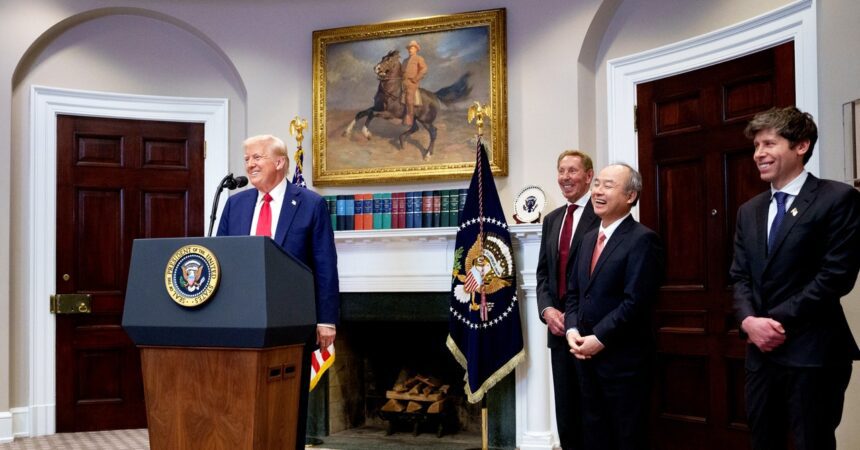The wheels are already set in motion on Donald Trump’s vision to transform the US into the “crypto capital of the world” following his return to the presidency.
In an executive order issued on Thursday, Trump initiated a “working group on digital asset markets,” tasked with exploring the feasibility of the US creating a “strategic national digital asset stockpile,” among other initiatives.
The pledge to create a stockpile was just one of the many promises Trump made to the crypto sector during his reelection campaign. While the concept puzzled economists, it garnered enthusiastic support from bitcoin enthusiasts. As whispers of the forthcoming announcement circulated on Thursday, the price of bitcoin surged to $105,000 per coin, nearing its record peak.
The order mandates the working group—which will include leaders from various government agencies, financial regulatory bodies, and the attorney general—to devise an appropriate framework of regulations and laws governing cryptocurrency.
Earlier that week, on Trump’s second day in office, the Securities and Exchange Commission (SEC)—the US regulatory body that filed numerous lawsuits against crypto firms under Joe Biden’s administration—set up a “crypto task force.” Under new leadership following the exit of former chair Gary Gensler, who faced significant backlash from the crypto community, the SEC pledged to formulate a “comprehensive and clear regulatory framework for crypto assets,” the agency announced.
Later that same day, Trump granted clemency to Ross Ulbricht, who was serving a life sentence for crimes committed while operating the notorious darknet marketplace Silk Road, one of the first platforms to accept bitcoin as payment. After his 2013 arrest, Ulbricht evolved into a symbolic figure within crypto circles for his role in promoting the bitcoin narrative.
These early actions indicate Trump’s readiness to deliver on prior campaign promises: to pass various crypto-focused legislation, reform the regulatory landscape surrounding finance in the US, and integrate cryptocurrency into the national treasury. Crypto advocates believe the repercussions will be far-reaching, extending well beyond US borders and paving the way for a new golden era for the industry.
“Our technology is exceptionally powerful and transformative. We must implement it across various societies,” asserts Joseph Lubin, co-founder of Ethereum and CEO of software firm Consensys. “And America sets the standard for the rest of the world.”
Despite having previously dismissed bitcoin as a “scam,” Trump now boasts substantial connections within the crypto sector, with many high-profile figures openly supporting his reelection efforts.
Leading up to the 2024 election, crypto organizations contributed hundreds of millions of dollars to super political action committees dedicated to crypto, using those funds to support congressional candidates favorable to the industry, predominantly from the Republican Party.
On the campaign trail, Trump began identifying himself as the first “crypto president.” In July, speaking to an enthusiastic crowd of bitcoin fans, he vowed to position the US as a crypto mining leader and establish a national bitcoin stockpile, should he regain the presidency. In that same address, he promised to oust Gensler, prompting the loudest applause of the evening.










